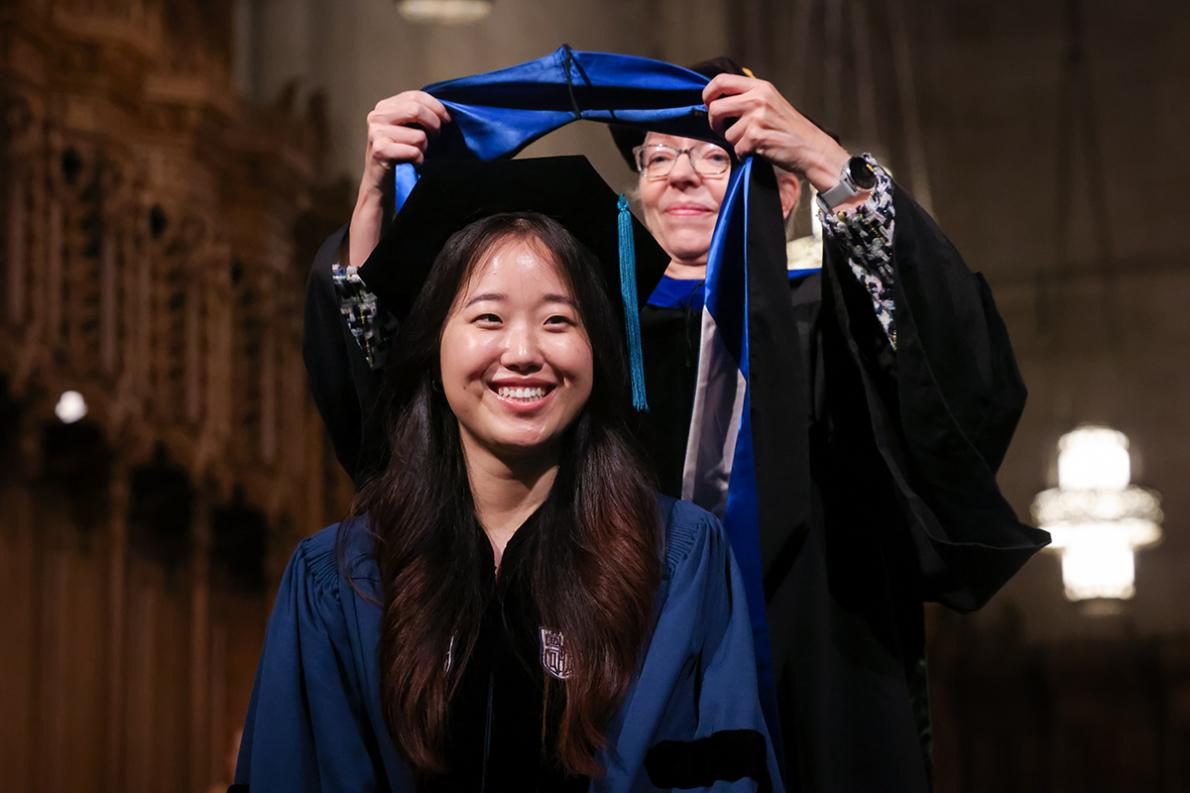Reflections on My Capstone Experience: A Journey of Exploration, Integration, and Immersion

As part of the Duke Occupational Therapy Doctorate (OTD) program, students complete a culminating capstone project and a 14-week immersive experience during their final year. This capstone provides an opportunity to apply coursework and fieldwork to collaborate with community partners and deepen knowledge in a specific practice area. Recent graduate Jisun Kim reflects on her journey, challenges, and the valuable lessons learned throughout the process.
The capstone experience in occupational therapy education is a time of exploration, integration, and immersion—each phase providing unique growth and learning opportunities:
- Exploration: This is the stage where you discover your professional foundation. Why do you want to be an occupational therapist? What drives you to pursue this path?
- Integration: This intentional blend of your academic knowledge and hands-on fieldwork helps you shape your project and approach. How can you bring your vision of an ideal therapist to life?
- Immersion: The final, deeply personal stage—14 weeks—where you engage in your project. During this time, you’ll face uncertainty, tackle unexpected challenges, and experience the learning that happens when you're truly immersed in the unknown.
When I began my capstone experience, I had no idea where to start. The overwhelming weight of the task hit me hard. I quickly realized I had much more to learn and grow into as a self-directed learner. The uncertainty was humbling but also pushed me to dive in headfirst.
The key to moving forward was breaking the process down into manageable steps:
- Self-Reflection: I took the time to think about what aspects of occupational therapy excited me the most and how I could make a meaningful impact in those areas.
- Engagement: I spoke with professors, peers, mentors, community members, and practicing therapists to gain diverse insights and perspectives.
- Focus on Occupation: I always kept occupation at the center of my project, ensuring that I highlighted the unique role of occupational therapy and its relevance to the project.
- Grounding in Reality: I considered the practical side of things—what could be accomplished in 14 weeks, considering logistics like timelines, IRB requirements, and other constraints.
For my capstone, I partnered with Dementia Inclusive Inc. and consulted with Teepa Snow to explore the impact of hobbies on the identity of individuals living with dementia. My project focused on spending time with people engaged in activities they love—such as birdwatching and photography—and listening to their personal stories.

Though the project required significant background research and groundwork, the most rewarding moments came from connecting with the community members involved. I learned to lead with my strengths—building rapport and forming relationships—while stepping out of my comfort zone to navigate the uncertainties that arose. This process of personal and professional growth allowed me to develop into a better occupational therapist.
This experience also gave me invaluable insight into applying the occupational therapy framework in dementia care. I learned how to advocate for the profession while making a meaningful difference in the lives of people with dementia. By the end of my capstone, I felt confident and prepared to enter the workforce with practical, tangible skills.

Advice for Future OTD Students:
- Be Flexible: Planning your capstone project can be challenging, especially over a year in advance. Be prepared to adapt your plan or protocol as circumstances change.
- Treat Assignments as Stepping Stones: Capstone assignments are not just tasks to complete; they guide the development of your project. Starting with intention will make integration and immersion smoother.
- Embrace Discomfort: Unexpected changes will happen. You may need to pivot or adjust your approach, and at times, you may feel lost. That’s okay! Seek help when needed and remember to take breaks to avoid burnout.
Through this journey, I learned that the capstone experience is about more than completing a project—it's about growth, learning from the unknown, and building the skills that will define you as a confident, compassionate occupational therapist.